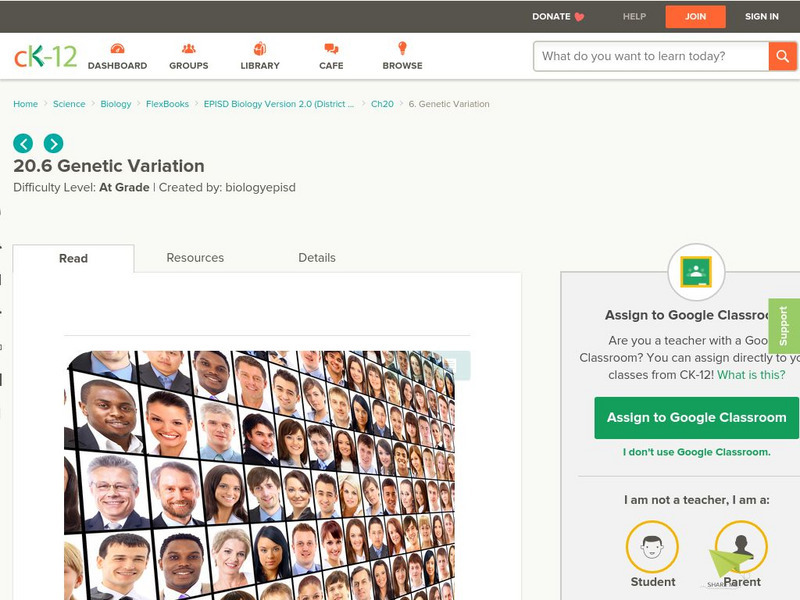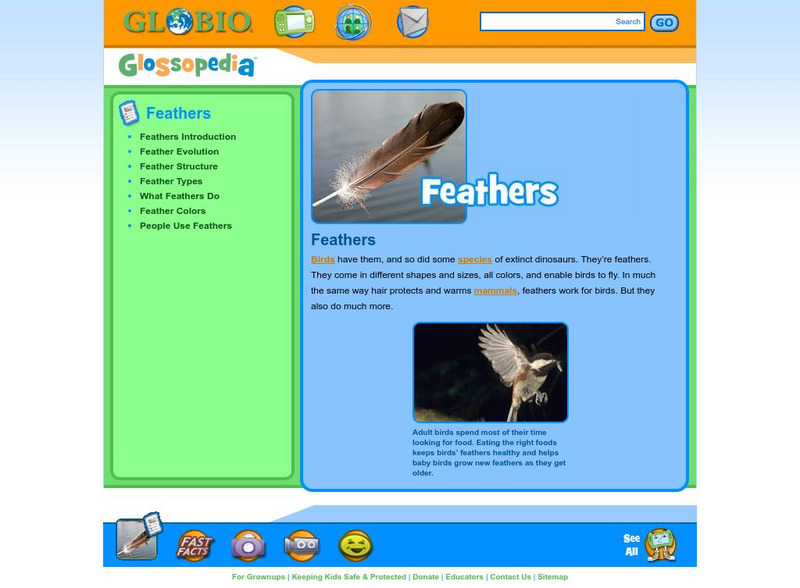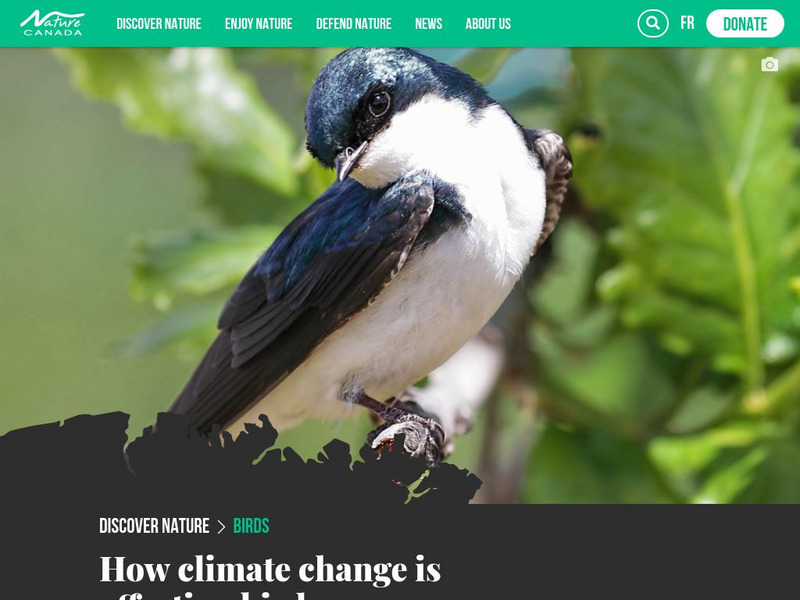Hi, what do you want to do?
American Institute of Biological Sciences
Action Bioscience: Pygmy Rabbits in Peril in the u.s.a.
What is happening to the population of pygmy rabbits? This article identifies the research being done to understand what is causing the decline in rabbit populations around the world.
Curated OER
Ny Times Learning Network: Wild Wildlife
In this lesson, students investigate the moral, economic and ecological impacts of the extinction of various animal species. Students first assess how and why people support and refute actions that lead to the extinction of animals. They...
CK-12 Foundation
Ck 12: Biology: Biodiversity Crisis Study Guide
This comprehensive study guide covers the main terms and concepts needed for a unit on the biodiversity crisis.
DOGO Media
Dogo News: Will This Palm Oil Alternative Save Orangutans?
Read about the effects of palm oil cultivation on the world's rainforests and species who live there, and about the development of a new alternative to palm oil. Includes video.
San Diego Natural History Museum
San Diego Natural History Museum: Fossil Field Guide: Crassatellid Clam
A look at what fossil evidence reveals about the life and ecological interactions of this extinct species of a clam.
TeachEngineering
Teach Engineering: Life Science
This unit covers the processes of photosynthesis, extinction, biomimicry and bioremediation. In the first lesson on photosynthesis, students learn how engineers use the natural process of photosynthesis as an exemplary model of a complex...
CK-12 Foundation
Ck 12: Episd: Genetic Variation
[Free Registration/Login may be required to access all resource tools.] How does genetic variation protect species from extinction? Understand sexual reproduction and the importance of both random fertilization and independent assortment.
Howard Hughes Medical Institute
Hhmi: Bio Interactive: Explore Your Inner Animals
Did you know parts of our body was inherited from distant animal ancestors? In this interactive students will investigate different anatomical features of the human body to reveal our evolutionary history. Learn how humans share...
Globio
Glossopedia: Feathers
Birds have them, and so did some species of extinct dinosaurs. They're feathers. They come in different shapes and sizes, all colors, and they enable birds to fly. Lots of information can be found in this article.
Curated OER
Yellow Seahorse (Hippocampus Kuda), Natural History Museum
This article describes a British project to store frozen samples of DNA from endangered species. The goal is to preserve genetic information, should a species go extinct.
Other
Field Trip Earth: Takhi Recovery in the Gobi
Field Trip Earth takes a look at the Prezewalski Horse Recovery done in Mongolia's Gobi desert. This was a species of horse that was brought back from near extinction. Learn about the project, the species, and the region it inhabits....
Nature Canada
Nature Canada: How Is Climate Change Affecting Birds?
An in-depth look at how climate change is affecting Canadian birds. The site looks at how bird distribution, abundance, behavior, even genetic composition are all being altered due to climate change.
Other
Earth Sky: When Did Humans Start Altering Earth?
The ArchaeoGlobe Project assessed knowledge on human land use over the past 10,000 years, through the contributions of more than 200 archaeologists. It concluded that, by 3,000 years ago, most of Earth was already transformed by...
Curated OER
Mother Polar Bear and Her Cubs Near Churchill, Manitoba
Polar bears have been officially listed as "threatened" under the United States Endangered Species Act. The belief is that the loss of Arctic sea ice in a warming climate could lead them toward extinction in less than four decades.Learn...













